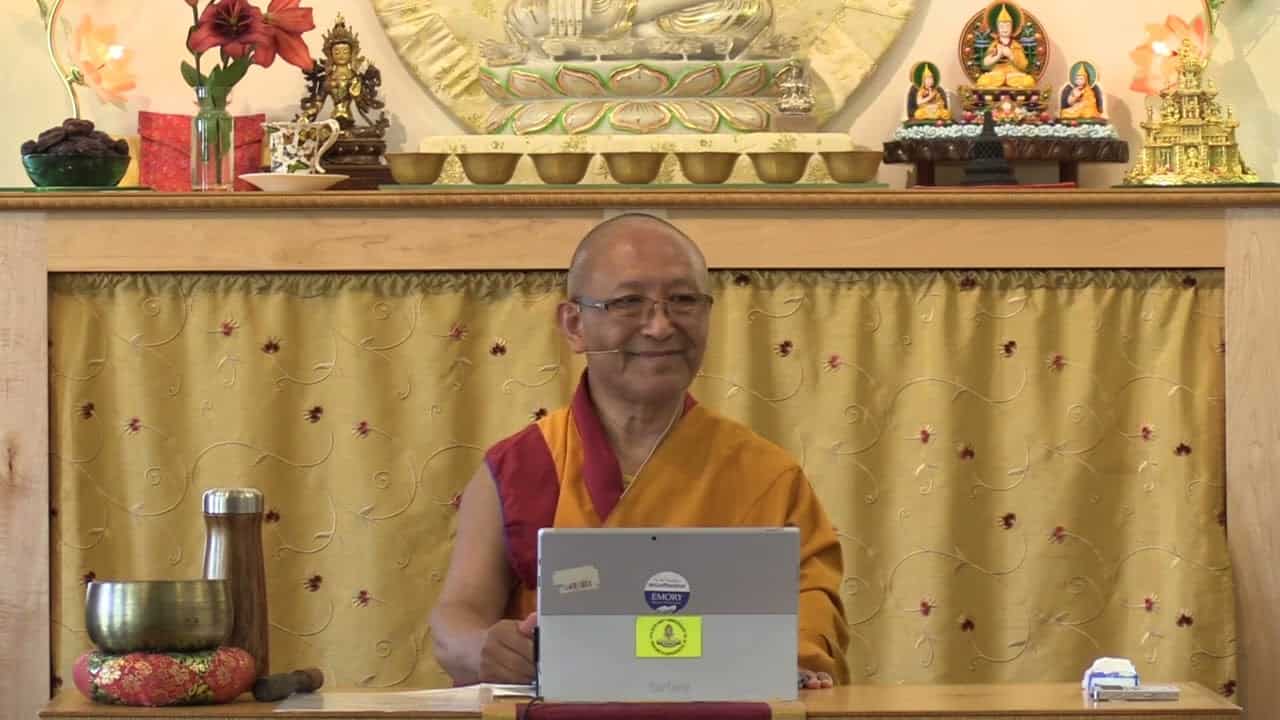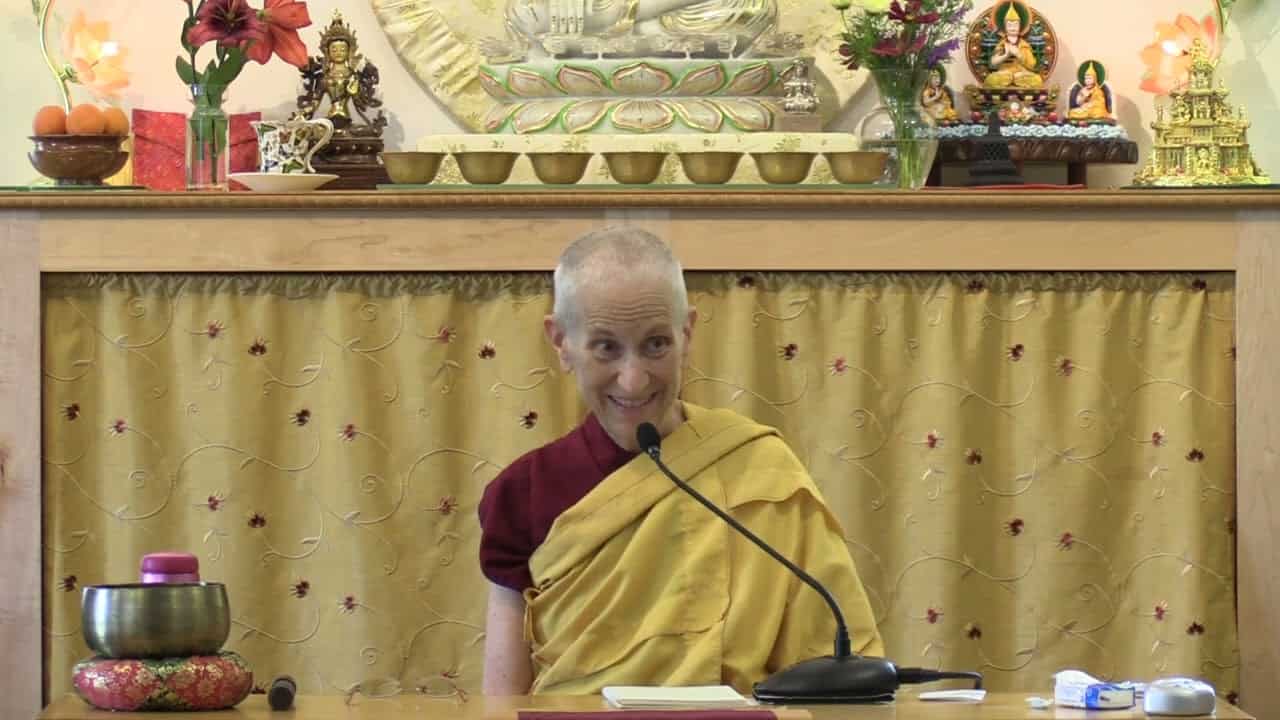The mind’s potential in the Pali tradition
115 Samsara, Nirvana, and Buddha Nature
Part of an ongoing series of teachings (retreat and Friday) based on the book Samsara, Nirvana, and Buddha Nature, the third volume in The Library of Wisdom and Compassion series by His Holiness the Dalai Lama and Venerable Thubten Chodron.
- Levels of mind based on the depth of single-pointed concentration
- Levels of mind depending on the physical condition of the body
- Explanation of subtlest clear light mind
- Subtlest mind and subtlest wind
- Description of mind in samsara and mind in nirvana
- Meaning of clear light mind is the source of everything in samsara and nirvana
- Explanation of what is meant by designated by the mind
- Description of the qualities of having modest desire and sense of contentment
Samsara, Nirvana, and Buddha Nature 115: The Mind’s Potential in the Pali Tradition (download)
Contemplation points
- What does it mean that the clear light mind is the source or creator of all phenomena in samsara and nirvana? How does this counter the belief that phenomena arise causelessly or by an external creator? How does this view of clear light mind as the creator of samsara and nirvana differ from the Cittamatra view?
- What does it mean that phenomena are merely designated by mind? What does Svantrika Madhyamaka tenet system assert about a given object that the Prasangika Madhyamaka do not. Spend some time with the assertions of each. Doesn’t it seem like there is something inside of you that makes you who you are? And yet, that essence isn’t findable upon analysis.
- According to Tantrayana, what steps are included in preparation before attaining awakening? Why is it so important to enjoy the process and manage our expectation about attaining realizations and actualizing the path?
- Why do characteristics like having modest desire and a sense of contentment signify that a person is a genuine spiritual practitioner aiming for liberation (how do these facilitate practice and the attainment of realizations)? How are you cultivating these virtuous characteristics in your own life now? Spend some time contemplating how more fully embodying these characteristics would positively affect the way you think, what do you do, and how you interact with the world around you. How would it facilitate your own spiritual practice.
Venerable Thubten Chodron
Venerable Chodron emphasizes the practical application of Buddha’s teachings in our daily lives and is especially skilled at explaining them in ways easily understood and practiced by Westerners. She is well known for her warm, humorous, and lucid teachings. She was ordained as a Buddhist nun in 1977 by Kyabje Ling Rinpoche in Dharamsala, India, and in 1986 she received bhikshuni (full) ordination in Taiwan. Read her full bio.


